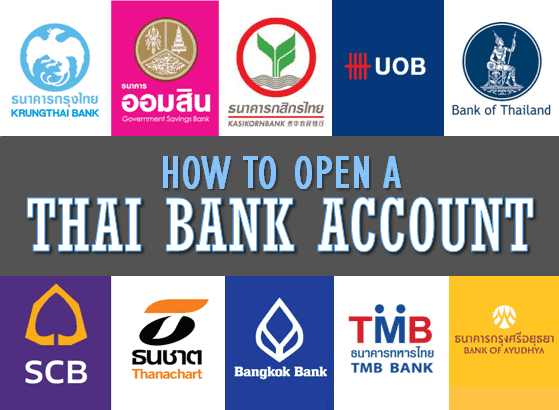Thailand has long been one of Asia’s most desirable destinations for property investors and retirees. With its tropical climate, welcoming people, and affordable luxury lifestyle, many foreigners dream not only of owning property but also of living here long-term. However, one question often arises: Can you actually get Thai residency by buying property?
The short answer is: buying property in Thailand does not automatically grant you residency. But — and this is key — owning property can strengthen your visa or residency application, especially if you use the right visa pathway. Let’s explore the legal realities, visa options, and what property ownership really offers in terms of long-term stay rights.
Understanding Property Ownership Laws for Foreigners
Foreigners are allowed to own condominium units in Thailand freehold, provided that foreign ownership does not exceed 49% of the total floor area in the building. This is governed by the Thai Condominium Act (1979).
Foreigners can also lease land for up to 30 years, with potential renewal clauses. However, you cannot directly own land in your own name unless you establish a Thai company or meet specific legal criteria.
While owning property is perfectly legal, ownership alone doesn’t grant any immigration status. This means you still need a valid visa or residency permit to live in Thailand long-term.
The Difference Between Visa and Residency
Many new investors confuse a visa with residency. A visa allows you to enter and stay in Thailand for a specific period — ranging from 60 days to several years, depending on the type.
Residency, on the other hand, means you’ve been granted the legal right to live in Thailand indefinitely without regular visa renewals. Permanent Residency (PR) in Thailand is rare, and it requires a solid history of living legally in the country.
Owning property can help support your case, but it’s never a standalone qualification for residency.
The Truth: Property Ownership Helps — But Doesn’t Guarantee Residency
While Thailand doesn’t have a “citizenship or residency by investment” program like some countries (e.g., Portugal or the Caribbean nations), there are several visa options that reward property ownership or investment.
Let’s look at the main ones that relate to property investors and long-term stays.
Visa Options for Property Owners and Long-Term Residents
1. Thailand Elite Visa
The Thailand Elite Visa is one of the most popular options for property buyers and investors.
This long-term visa program offers 5-, 10-, or 20-year residency options, depending on the membership package you choose.
Benefits include:
Legal long-term residency (no border runs)
VIP airport services and fast-track immigration
Assistance with banking, healthcare, and driving licenses
Eligibility for family members to join
While owning property isn’t required, many Elite Visa members are property investors who use the visa to enjoy flexible, long-term stays.
Keywords: Thailand residency by investment, Thailand Elite Visa, property investor visa Thailand.
2. Long-Term Resident (LTR) Visa
Introduced in 2022, the Long-Term Resident Visa (LTR) is designed for high-potential foreigners such as investors, wealthy retirees, and digital professionals.
LTR Visa holders can stay up to 10 years and enjoy tax benefits, work permission, and multiple entries.
For property investors, eligibility may include:
Minimum annual income of USD 80,000 (or assets worth USD 1 million)
Investment in Thai government bonds, real estate, or company shares worth at least USD 500,000
Owning property in Thailand helps fulfill part of the investment requirement — making it an attractive route for long-term relocation.
3. Retirement Visa (Non-Immigrant O-A or O-X)
Thailand’s retirement visas are perfect for foreigners aged 50 and above.
Requirements typically include:
Minimum deposit of 800,000 THB in a Thai bank, or
Monthly income of 65,000 THB, or
A combination of income and savings
While property ownership doesn’t automatically qualify you for this visa, owning a home in Thailand demonstrates long-term commitment, which can support your overall application and stability.
4. Smart Visa for Entrepreneurs and Investors
If you’re investing in tech, startups, or targeted industries, the Smart Visa offers a 4-year stay without needing a work permit.
Foreigners investing in innovative Thai companies or technology-related property developments may qualify. Although less common, it’s ideal for digital entrepreneurs relocating to Thailand.
5. Business Visa (Non-Immigrant B)
Foreign investors can apply for a business visa if they establish or invest in a Thai company.
This option can be combined with property investments through a corporate structure, though it requires careful legal planning.
Can You Apply for Permanent Residency in Thailand?
Yes — but it’s a selective process. To qualify for Permanent Residency, you must:
Hold a Non-Immigrant Visa for at least 3 consecutive years
Show strong income and tax records in Thailand
Demonstrate ties to the country (such as owning property or having family here)
Pass a Thai language interview
Property ownership can help prove your financial stability and integration into Thai society, but it’s not a direct ticket to residency.
Common Misconceptions About Thai Residency by Property Investment
“Buying a condo automatically grants me residency.”
❌ False. You still need a valid visa or residency permit.“I can get a Thai passport if I invest enough money.”
❌ False. Citizenship is only available after years of legal residency and integration.“If I buy property through a Thai company, I get special immigration rights.”
❌ False. Company ownership does not impact visa or residency status.
The Smart Way to Combine Property Ownership and Long-Term Stay
For most foreigners, the most effective approach is to buy property legally while applying for a long-term visa that fits your lifestyle and financial situation.
Here’s a practical example:
You buy a condominium in Phuket worth 10 million THB.
You join the Thailand Elite program or apply for an LTR visa.
You enjoy renewable multi-year stays and can use your condo as your legal residence.
This combination gives you both the lifestyle benefits of homeownership and the stability of long-term legal stay.
Final Thoughts: Property and Residency Work Hand in Hand
While Thailand does not offer direct residency by investment, owning property can complement your visa or residency application and make long-term living in the country more convenient.
If your goal is to settle or invest in Thailand, the smartest move is to:
Purchase a legally approved property (preferably freehold condo).
Choose the right visa pathway — Elite, LTR, Retirement, or Smart Visa.
Consult professionals who understand both immigration and property law in Thailand.
By combining property investment with the correct visa strategy, you can enjoy a stable, luxurious, and rewarding life in the heart of Southeast Asia.
Ready to start your journey? Contact our Phuket real estate team today for expert guidance on buying property in Thailand and finding the right visa solution for long-term residency.




